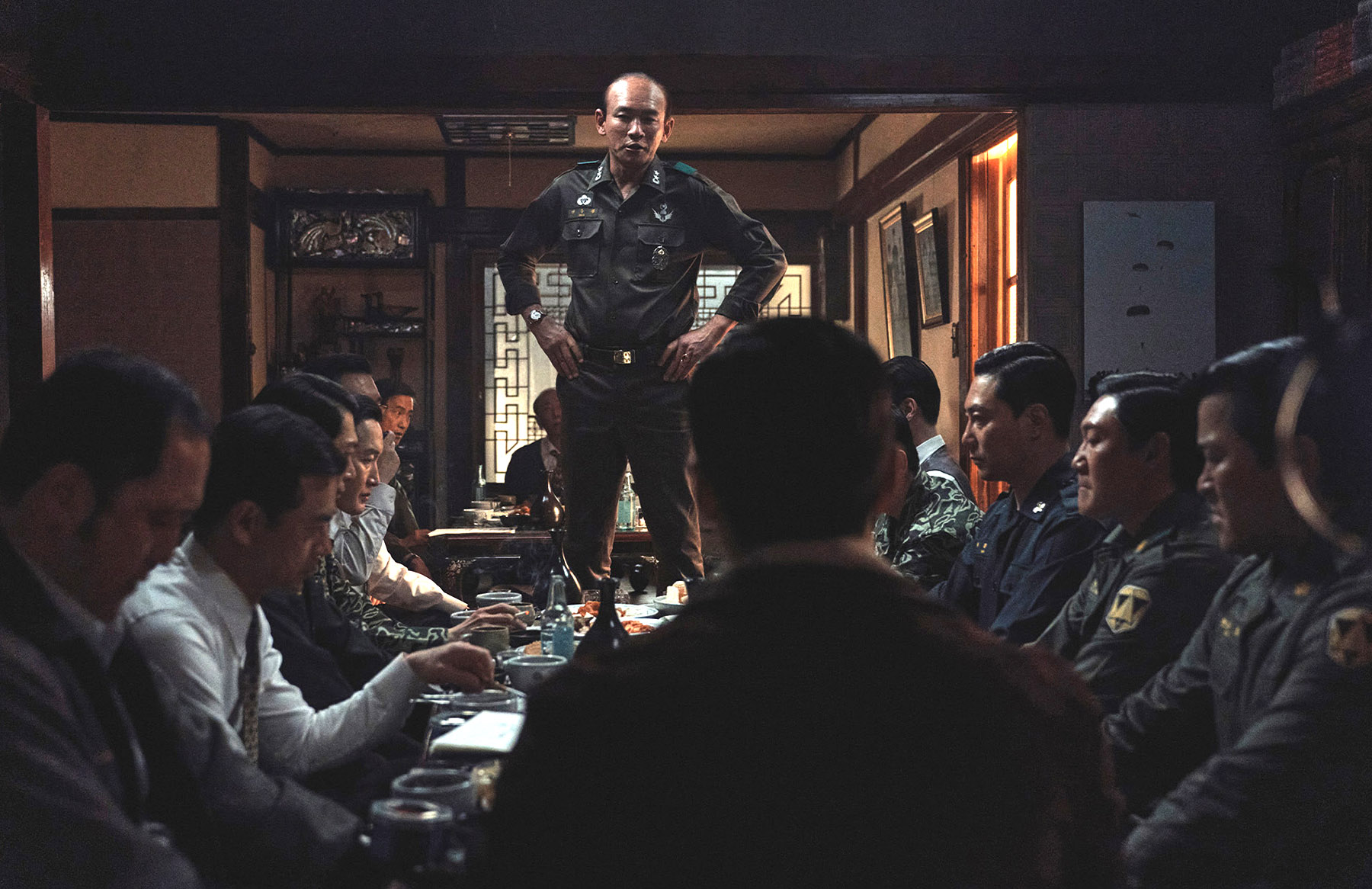
The events of a single day that led to some of the darkest years of South Korea’s recent past are chronicled in 12.12: The Day. Musa director Kim Sung-su’s political thriller manages to balance cloak-and-dagger action with a sense of sorrowful foreboding of the dark days ahead.
Based on recently declassified materials, 12.12: The Day was South Korea’s highest-grossing film of 2023, earning nearly five times its budget in ticket sales. To say that South Koreans are keen on interrogating their past, their institutions and how they inform the present is an understatement. Of course, having two immensely popular stars, Hwang Jung-min and Jung Woo-sung, in leading roles helps.
READ MORE: Korea’s rock-star cop soldiers on
12.12: The Day unfolds during the day and night of the military coup and power grab that followed the assassination of president Park Chung-hee in October 1979 and the ensuing declaration of martial law. General Chun Doo-gwang (based on the future fifth president of South Korea, Chun Doo-hwan, and played by Hwang) and his cabal of usurpers cajole elected president Choi Han-gyu (based on Choi Kyu-hah) into signing all manner of fraudulent arrest orders and executive decisions to secure power. As Chun tries to use his investigation into the murder of Park as a smokescreen for his coup, his illegal moves get the attention of Capital Garrison Commander Lee Tae-shin (based on Jang Tae-wan, and played by Jung), who inadvertently becomes the last line of defense against Chun’s eight years of authoritarian rule.
Of course, no one knows what’s in store for the entirety of the 1980s when 12.12: The Day ends. The Korean title, which translates as “Seoul Spring”, is ironic — hinting at the dashed hopes for democratic rule in the wake of Park’s assassination. Chun’s reign of terror ends only after he throws in the towel in 1987. But as Lee is carted off to jail at the end of the film, that dark period is yet to begin.
What holds the film together is Kim’s impeccable storytelling and faultless ability to convey who the players are in the various factions, and the power dynamics between them. He gets a great deal of help from editor Kim Sang-beom on that front, and opts for an immersive aesthetic that evokes the late 1970s. Through it all, Kim and his team of writers hint at the ethical and legal dilemmas that emerged behind closed doors, many of which have gained new traction as the world swings right. Hinting at them was the right way to go, as the issues never stall the action, rather linger for contemplation at a later stage.
ALSO READ: Migration sagas of marginalized people
Kim has worked with both Hwang and Jung often in the past. The trio’s long history allows both actors the confidence to take it easy while giving career-best performances. Hwang delivers a big, meticulously psychotic performance as Chun, making him a maniacal and driven monster whose monstrosity is only simmering at this stage. As his opposite, Jung keeps Lee wound tight, and paints him as a man abjectly insulted by someone playing fast and loose with the constitution. It’s the ultimate cat-and-mouse game.
12.12: The Day is fundamentally a terrific political thriller that exploits the genre’s tropes to maximum effect but roots the real drama in the psychology of the people at the heart of the action, rendering it even more infuriating — and tragic.


